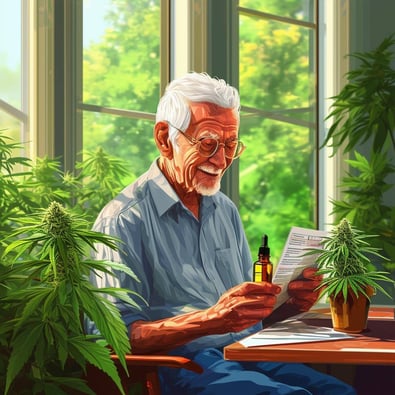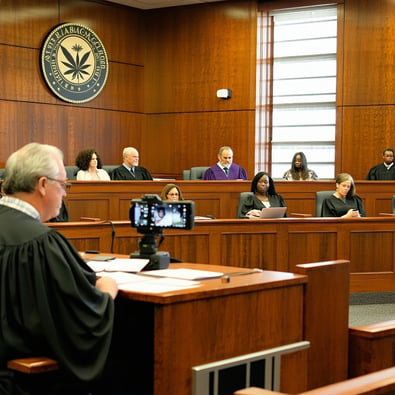ATLANTA, Ga. (WRDW/WAGT) - Georgia’s medical cannabis and hemp industries are once again under the spotlight as state lawmakers begin reevaluating how the state regulates the production and sale of those products.
Nearly every U.S. state has legalized some form of medical or recreational marijuana. While Georgia legalized medical cannabis use a decade ago, the state remains one of the most restrictive in terms of who qualifies and what products are available.
Lawmakers gathered in a packed committee room at the State Capitol on Tuesday to discuss how to grow or restrict Georgia’s cannabis industry safely and legally. The focus is on two specific sectors: hemp-derived products such as CBD, and low-THC oil permitted for medical use.
Roughly 13,000 Georgians are registered for Georgia’s low-THC oil program. One of them, Yolanda Bennett, told lawmakers the current products are not effective enough to manage her chronic pain.
Currently, 14 dispensaries in Georgia are licensed to sell low-THC oil.
Judson Hill, who represents one of those dispensaries, argued that available medical products are often less effective than over-the-counter hemp items. He voiced support for expanding the program to include faster-acting products, like cannabis flower and inhalables.
“For someone with stage 4 cancer or severe epileptic seizures, they need that immediate relief,” Hill said. “What we’re offering now takes 30 minutes at best to kick in.”
But not everyone is pushing for expansion.
Several parents testified about the dangers of high-THC products. Two Georgia mothers shared emotional stories of how their underage sons were able to obtain potent cannabis products illegally.
“His life ended before it began,” said Jennifer, one of the mothers. Another, Mary, warned, “He had a frequent buyer number in their system at the age of 17.”
Also in attendance was state Rep. Derrick Jackson, a Democratic gubernatorial candidate. While not on the study committee, Jackson is sponsoring legislation that would legalize recreational marijuana use and create a fully regulated cannabis industry.
“When you think about alcohol, beer, and other adult products, we already regulate those,” Jackson said. “We just have to make sure we encourage and empower the consumer to be responsible.”
The legislative study committee is expected to meet several more times over the coming months. While no formal decisions have been made, lawmakers could draft new cannabis legislation ahead of the 2026 legislative session.





